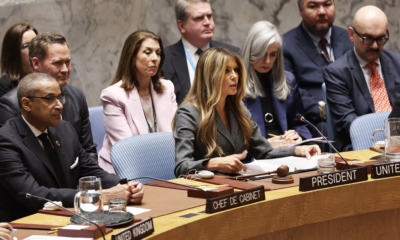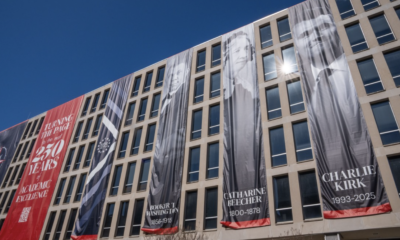Trump Presidency
Trump Administration Removes Kash Patel as ATF Chief, Installs Army Secretary Dan Driscoll
In a significant shake-up within federal law enforcement, the Trump administration has removed FBI Director Kash Patel from his dual role as interim head of the Bureau of Alcohol, Tobacco, Firearms and Explosives (ATF). Kash Patel has been replaced by Dan Driscoll, the current secretary of the army, in a move that stunned senior ATF officials when announced on Wednesday morning. The decision marks the first time the Department of Defense has been given direct control over the ATF — an agency historically overseen by the Department of Justice.
Why the Change Was Made
According to sources familiar with the matter, Kash Patel’s dual leadership of both the FBI Director and the ATF had become “overly burdensome.” With limited Senate-confirmed officials available for redeployment, Dan Driscoll emerged as a practical choice to assume the ATF’s interim leadership. Although unorthodox, the administration sees this move as both a temporary solution and a potential stepping stone toward broader restructuring of federal law enforcement agencies.
The original decision to place FBI Director Kash Patel in charge of the ATF was highly unconventional. Traditionally, the ATF has operated independently under its own director. Now, with the agency’s leadership transferred outside the Justice Department entirely, questions are being raised about the Trump administration’s long-term goals.
Military Oversight of Civilian Gun Enforcement
With Dan Driscoll expected to continue his duties as Army Secretary while overseeing the ATF, the dual role brings concerns about the military’s expanding influence over civilian law enforcement. Legal and policy experts are alarmed by the implications of this move, as it blurs the lines between military and domestic enforcement functions. A spokesperson for the Department of Justice has not issued a statement about the ramifications or whether this change will become permanent.
Signals of a Larger Plan
The Trump administration has long harboured scepticism toward the ATF and its mission, particularly its enforcement of federal gun laws. Some of Trump’s advisers have even floated the idea of merging the ATF with the Drug Enforcement Administration (DEA) or dramatically slashing its budget and personnel.
This leadership change with Kash Patel removal may be the first concrete step in those plans. In recent weeks, ATF agents have been reassigned to support the administration’s aggressive immigration enforcement operations, further diverting the agency from its core mandate.
Trump Appoints Kash Patel as FBI Director, Sparking Debate Over Leadership Choices
Policy Rollbacks on the Horizon
The leadership shake-up coincides with Attorney General Pam Bondi’s announcement to roll back key Biden-era ATF policies. Specifically, Pam Bondi is targeting the “zero tolerance” policy that revoked licenses from firearms dealers who repeatedly violated federal regulations. The move, aimed at appeasing pro-gun advocacy groups, could significantly weaken oversight of gun dealers across the country.
With the ATF now under temporary military leadership and facing a potential downsizing or merger, the future of America’s gun enforcement landscape is uncertain. The decision has sparked debate among lawmakers, legal scholars, and gun control advocates, many of whom see the move as politically motivated and potentially dangerous.
As Dan Driscoll takes the helm, all eyes will be on how he balances his military responsibilities with the increasingly politicized task of managing the ATF — and whether this is the beginning of a broader transformation of federal law enforcement under Trump.











































